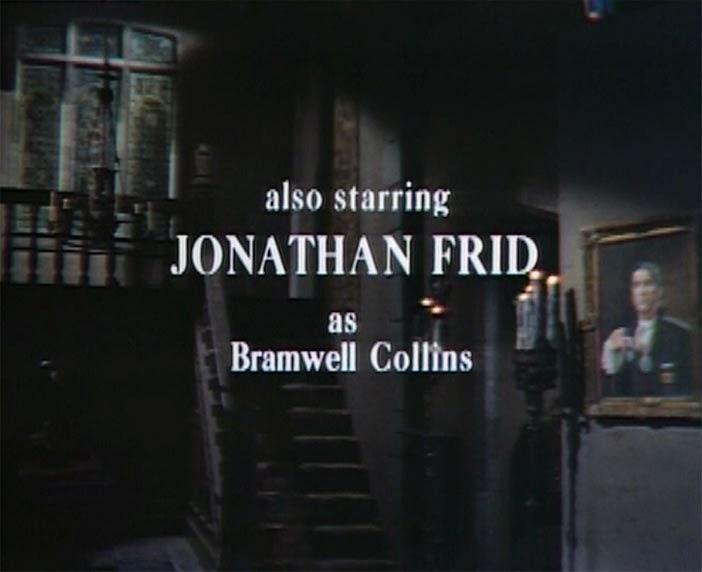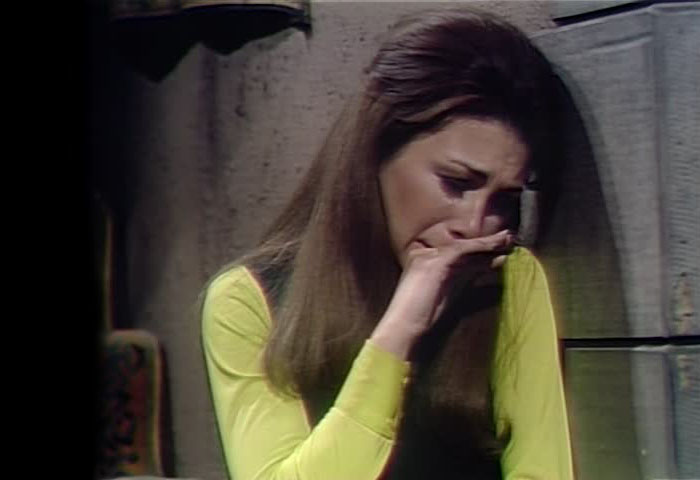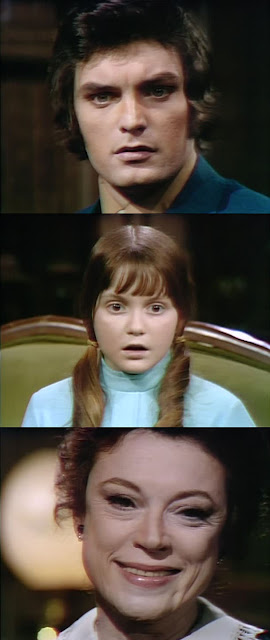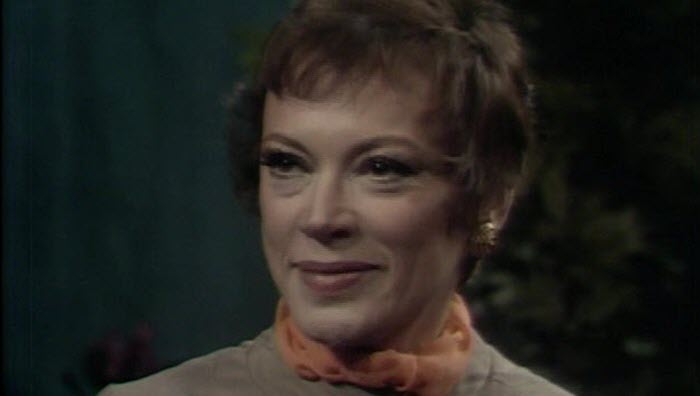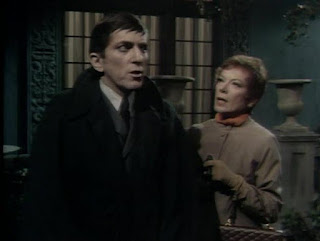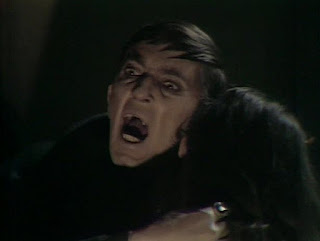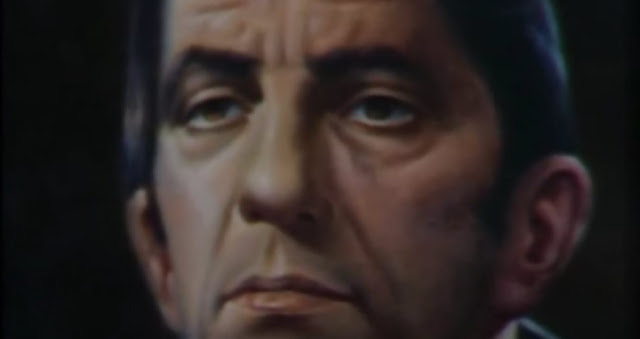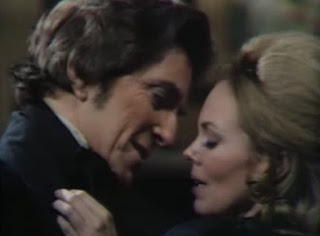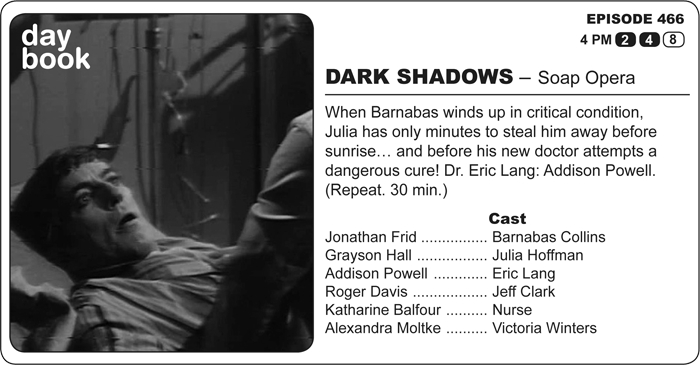(Note: this piece was first published on April 2, 2015. Consider this a re-run.)
By WALLACE McBRIDE
It’s better to burn out than fade away.
On this day in 1971, DARK SHADOWS came to a thudding halt. The show was pretty far from its prime, and was coasting on little more than the strength of its cast and goodwill from its audience. While the ratings during the final year weren't good, its previous success also made it more expensive to produce. The cast was earning salaries negotiated when the show was a ratings smash, so any slip in ratings made it that much more painful to the bottom line. By April 2, 1971, the ratings for DARK SHADOWS weren't far from where they were before the introduction of Barnabas Collins in 1967.
Had Dan Curtis any interest in the show, though, it’s possible DARK SHADOWS might have continued. The production had essentially been running a five-year creative marathon (one that also included the production of two feature films), which gave the show little time to find its second wind. It’s difficult to imagine the cast and crew putting up much resistance when told DARK SHADOWS was over. There might even have been a sense of relief for some of them.
And the final story arc was a weird one. Devised as a sequel to the 1795 storyline, it borrowed elements from Shirley Jackson's "The Lottery" while also mixing in traditional soap opera plots (infidelity, paternity questions, love triangles, etc.) and the obligatory ghost. As a twist, the story was set in a "parallel time" tethered from the show's continuity. The results felt decided unlike DARK SHADOWS, despite the presence of so many familiar faces here.
It’s kind of amazing how many cast members managed to stick around for the duration of the series. Present in the final episode are Joan Bennett and Louis Edmonds, who both appeared in the show’s first episode in 1966. Also making their curtain call here are Nancy Barrett and Thayer David (who were also part of the pre-Barnabas cast), John Karlen, Grayson Hall, Lara Parker and, of course, Jonathan Frid. Even producer Gordon Russell gets in on the fun, appearing here as “Harris, the second footman.”
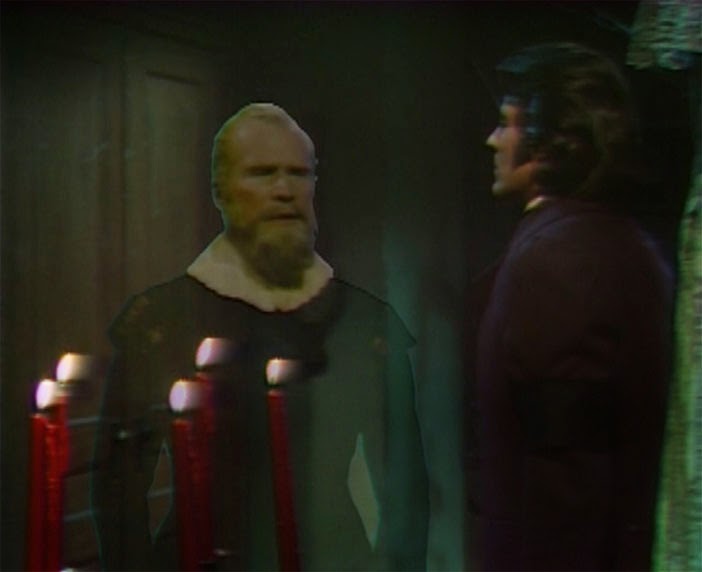 |
| Et tu, Brutus? |
Prentice’s “Morgan Collins” was an utter failure, though.
As far as handsome actors go, Prentice was more “handsome” than “actor.” His performance on DARK SHADOWS is stifled by his obvious stage fright, with his good looks doing most of the heavy lifting. The guy was perpetually sweaty throughout his 40-episode run of DARK SHADOWS, something I initially attributed to the heavy wool costumes and lighting. But that doesn't explain why none of his co-stars ever looked like they just left the gym without showering. While Frid made his panic work for him, Prentice just came across as inhibited.
Frid unfairly gets the lion’s share of the blame for tepidness of the “1840 Parallel Time” storyline. There were a lot of tensions pulling at the seams of DARK SHADOWS during its final year, but Frid is the easiest target because he’s the most visible. As with many soaps, the writers had tried so many different romantic pairings during the show’s run (Barnabas + Victoria; Quentin + Angelique; Willie + Carolyn) that there wasn't much left to mine from the cast’s chemistry.
Complicating matters was the show’s tendency toward inbreeding. It’s difficult to set off romantic sparks when so many of the characters are related to each other, which is what slowly happened as DARK SHADOWS progressed. Almost everyone on the show had become a Collins during the final year. Even Grayson Hall’s “Julia Hoffman” had been transformed here into “Julia Collins.”
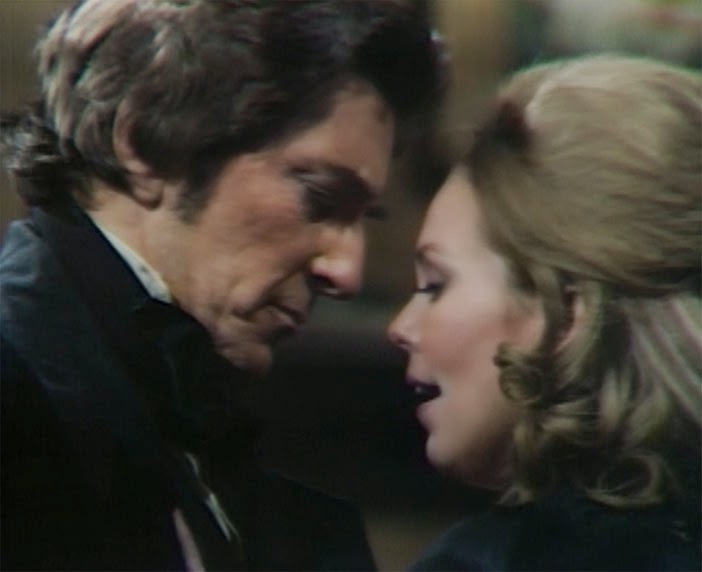 In a sense, the 1840 Parallel Time arc allowed the writers to pair actors instead of characters. It was supposed to be a fresh start, allowing actors like Frid and Parker to work without the baggage of Barnabas and Angelique. But the story quickly turned into a brick wall. The writers were no longer engaged in the material, and Frid’s performance as Bramwell Collins — the son of Barnabas Collins — was further proof that he was bored with DARK SHADOWS. He was too much of a professional to phone-in his performance (he’s actually quite energetic in this final episode), but Bramwell clearly did not provide the inspiration he needed at this point in his career.
In a sense, the 1840 Parallel Time arc allowed the writers to pair actors instead of characters. It was supposed to be a fresh start, allowing actors like Frid and Parker to work without the baggage of Barnabas and Angelique. But the story quickly turned into a brick wall. The writers were no longer engaged in the material, and Frid’s performance as Bramwell Collins — the son of Barnabas Collins — was further proof that he was bored with DARK SHADOWS. He was too much of a professional to phone-in his performance (he’s actually quite energetic in this final episode), but Bramwell clearly did not provide the inspiration he needed at this point in his career.In fact, nobody’s going through the motions in this episode. Parker is especially good and couldn't be any more invested in her performance if it had been her first episode instead of her last. Story has it that Neil Simon was present on the set of taping for the final episode, prompting a much broader performance from Prentice — who used his final appearance as an opportunity to audition for the playwright.
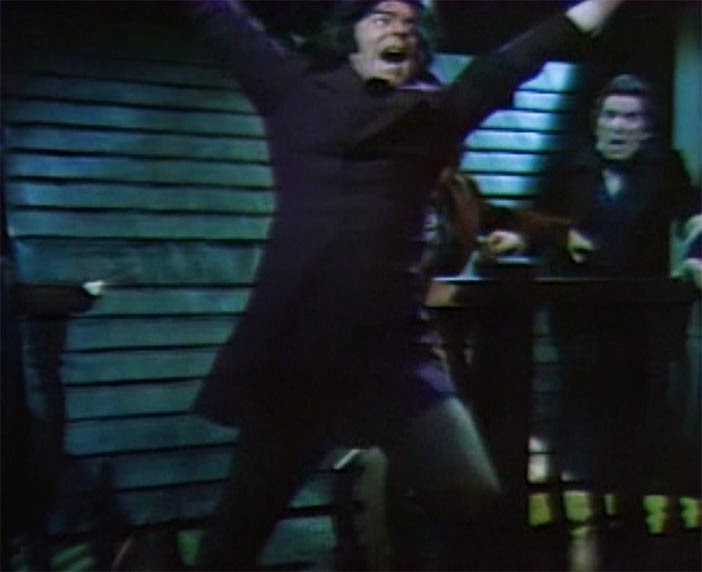 |
| #Pratfall. |
Melanie Collins (Nancy Barrett) is carried into the foyer of Collinwood, unconscious with a suspicious-looking wound to her neck. Ben Stokes (Thayer David) leaps to the obvious conclusion, telling everyone — the audience included — that it appears to be the work of a vampire. Cut to a closing monologue, also read by Thayer, that begins with these words:
“There was no vampire loose on the great estate. For the first time at Collinwood the marks on the neck were indeed those of an animal.”Thanks, guys.
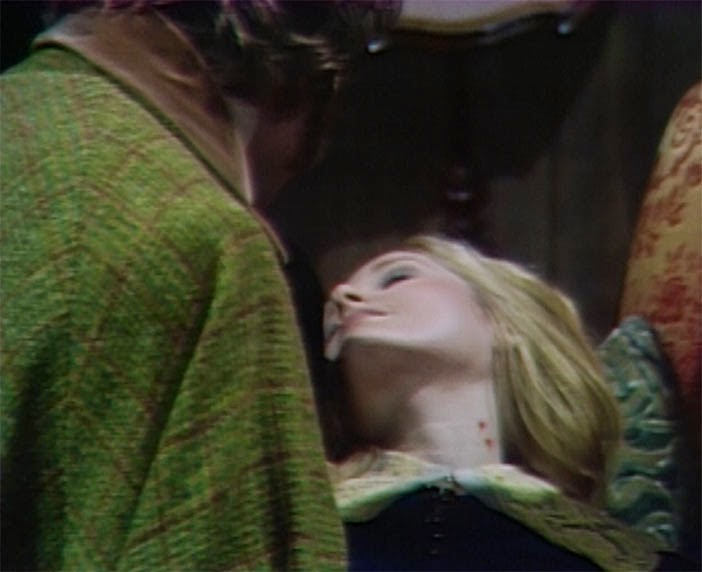 |
| Squirrel bites look remarkably similar to vampire bites. |
"Melanie soon recovered and went to live in Boston with her beloved Kendrick. There, they prospered and had three children. Bramwell and Catherine were soon married and, at Flora's insistence, stayed on at Collinwood where Bramwell assumed control of the Collins business interests. Their love became a living legend. And, for as long as they lived, the dark shadows at Collinwood were but a memory of the distant past.”As a conclusion for DARK SHADOWS, this episode left much to be desired. Barnabas Collins and the rest of the show’s core cast hadn't appeared on the show since the January of that year, and were not mentioned. Intending to right that wrong, head writer Sam Hall penned a lengthy epilogue for the series, which was published in TV Guide. Fans quickly stepped up, as well, and have spent the last 40 years writing fanfic that continued the story. From there, DARK SHADOWS already fragmented continuity just continued to splinter. The completely unrelated novels by Marilyn Ross continued for a short time after the cancellation of the show, while the also unrelated comics from Gold Key remained in print until 1976. Lara Parker has written several novels set after the events of the original television show, which contradict the events depicted in the comics published a few years ago by Dynamite Entertainment. And then there's Big Finish, which has produced almost 50 audiodramas extending the show's continuity ... which are also unrelated to any other stories set in the years after the end of the original television show.
In a sense, DARK SHADOWS is both blessed and cursed with resolutions to the original series. We've got enough material out there to pick and choose what we like, constructing our own narratives using the "best of the best" of what's been created since the show's end in 1971. In that regard, it's likely DARK SHADOWS will never truly end.

